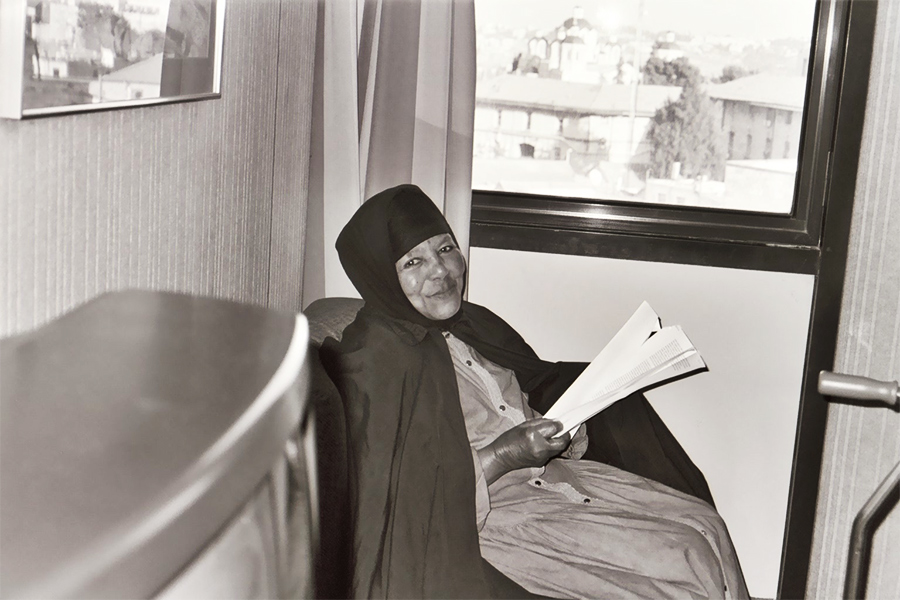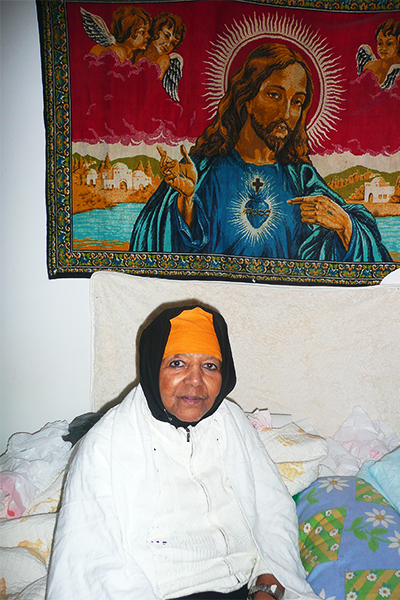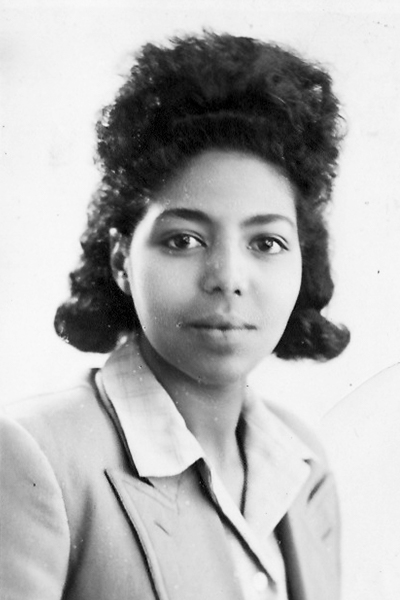Celebrating the life of Emahoy Tsegué-Maryam Guèbrou
Ethiopia’s musically blessed nun was a truly unique musical talent
In March 2023, we lost an exceptional woman: musician and nun, Emahoy Tsegué-Maryam Guèbrou, who would have turned 100 years old in December 2023. Her life tells a story that is as moving and as eventful as any film.

EmahImage: Courtesy Emahoy Publishers

Guèbrou was born into an influential family in Addis Ababa – her father was a diplomat and the mayor of Gondar. During her time at a Swiss boarding School, Guèbrou’s exceptional talent for music was uncovered in piano and violin lessons, where she was introduced to Western classical music. After Guèbrou returned to Addis Ababa to resume her studies at the Empress Menen Secondary School, tragedy struck. Three of her brothers were executed in the second Italo-Abyssinian War, whilst the rest of her family were sent to an Italian prison camp.
Despite these horrific episodes, Guèbrou grew into a sophisticated, determined woman, with seven languages under her belt and a strong sense of feminism instilled. She was the first woman to work for the Ethiopian Civil Service and the first woman to sing in the Ethiopian Orthodox Church. She even performed for Emperor Haile Selassie.
It seemed obvious that Guèbrou would make it as a young musician. She was offered a scholarship to study at London’s Royal Academy of Music, but was denied the chance to take up this opportunity by authorities, for reasons that remain unknown.
Turning to religion, she swapped the life she knew in Addis Ababa for the Guishen Maryam Monastery in the Wello region of Ethiopia. Ordained at 21, she gave up her birth name, Yewubdar Guebrou, and received the one that we know her by today; Emahoy Tsegué-Maryam Guèbrou (‘Emahoy’ means ‘female monk’). She also continued to practice the piano for up to nine hours a day, helping to develop her distinctive sound.
“Emahoy’s music speaks in a highly spiritual dimension”
Guèbrou’s music isn’t easy to define. Pentatonic (five-note) scales, a free-flowing sense of timing and an essence of Western classical contribute towards Guèbrou’s unique style. Her compositions are characterful; some ache with melancholy, some are sprightly and worry-free, others are nuanced with nostalgia – a feeling so comforting that, on first listen, it’s easy to believe you’ve heard it before.
You could refer to blues, ragtime and ancient modal chants to describe Guèbrou’s sound. In fact, it’s Ehio-jazz that claims perhaps the greatest connection with her music. After all, Ethio-jazz combines pentatonic scales with a 12-tone scale, has ties with Western jazz music and utilises improvisation; all things that connect to Guèbrou’s sound. This is why her music is often spoken about in relation to Ethio-jazz greats like Alemayehu Eshete, Hailu Mergia and Mulatu Astatke, often seen as the father of Ethio-jazz. Yet, her music is also spoken about in the same breath as Western classical greats, including pianists Claude Debussy and Erik Satie.

Image: Courtesy Emahoy Publishers
It was 1967 when Guèbrou released her debut album, Spielt Eigene Kompositionen. However, it wasn’t until after her relocation to the Ethiopian Orthodox Convent in Jerusalem that her music would reach a global audience thanks to a French record label.
Ethiopiques is a series of album reissues and compilations by Buda Musique, aiming to highlight music from a different era written or recorded by Ethiopian musicians. Guèbrou’s piano tones caught the ear of label head-honcho Francis Falceto, leading to the release of Ethiopiques, Volume 21: Emahoy (Piano Solo) in 2006. It garnered rave reviews. In April 2023 – the year that would have seen Emahoy turn 100 years old in December – Chicago label Mississippi Records released Jerusalem, the first archival release of her music since the Ethiopiques album.
Maya Dunietz is an Israeli pianist who worked with Guèbrou. “I met Emahoy when I was 24 and she was 82”, says Dunietz. Enchanted by her music, she tracked Guèbrou down, visiting her in her monastery in Jerusalem. “We spent some hours discussing music, religion, society, the soul and more, in some mix of English, German and Italian”. Two years after that meeting, Guèbrou called Dunietz to ask a favour of her.
“It’s easy to identify Emahoy as a unique individual in our vast history. Her whole story is unique and special to Ethiopians”
“I went [to see her] the next day and when I arrived, [Guèbrou] was waiting in the neighbouring nun’s room with three or four old, wrinkled Ethiopian Airlines plastic bags. She handed them to me and said ‘Here is all my music, it’s in a mess.’ She explained that people from all over the world ask for her sheet music, and she finally wanted to notate it properly and make a book”, Dunietz explains. “She hoped to use the money raised to help orphans receive musical education”. Today, a music foundation in Emahoy’s name based in Washington, DC provides musical education to children from underserved communities.
Daniel Assefa is a board member of the Emahoy Music Foundation. “Emahoy was a very unique and free-spirited individual,” he says. “She always expressed herself gently, but stood her ground for what she wanted to accomplish. Emahoy never stopped advancing her musical talent and spiritual journey.”

Emahoy in earlier years / Image: Courtesy Emahoy Publishers
Guèbrou’s legacy lives on not only in her foundation but through her music. Bassist Tommy Gobena – formerly of Gypsy punk band Gogol Bordello – was born in Addis Ababa. “As an Ethiopian musician and producer, it’s easy to identify Emahoy as a unique individual in our vast history. Her whole story is unique and special to Ethiopians”, says Gobena. “There aren’t a lot of nuns that live in a monastery and compose and perform music, with piano being the instrument of choice”.
Kibrom Birhane is an Ethiopian musician credited with contributing to a modern era of Ethio-jazz. He celebrates Guèbrou not only for her music, but for her ground-breaking advancements as a female musician. “Being a woman and musician in our culture is so hard. There’ve been a few female artists, but almost all of them sing or play the krar [a traditional Ethiopian stringed instrument]. Emahoy was the first female pianist in Ethiopia, who endured so many hardships in her life, but still wrote and contributed beautiful music to the world; a true inspiration to the next generation of women musicians”.
“Emahoy’s style is both modern and timeless”, says saxophonist DA Mekonnen, co-founder of two groups – Debo Band and Dragonchild – inspired by his Ethiopian lineage. “Her piano compositions reveal her faith, upbringing, and culture, and they feel effortlessly beautiful, deeply spiritual, and uniquely personal”.
Maya Dunietz maintained her friendship with Guèbrou over the years and absorbed much from their time spent working together. “Emahoy’s music speaks in a highly spiritual dimension,” Dunietz says. “The sound she brought to the world is modest, gentle, deep, serene, sorrowful, yet full of love and faith. Her sound is direct and honest, and since the emotional message is so pure, it penetrates straight into the heart of the listener.”
Although Emahoy may be gone, it’s clear that she, her genuinely unique music and her far-reaching legacy are in no danger whatsoever of being forgotten.
Discover more crucial Ethiopian sounds with our brief guide to Ethio-jazz and pick of ten essential Ethiopian musicians.